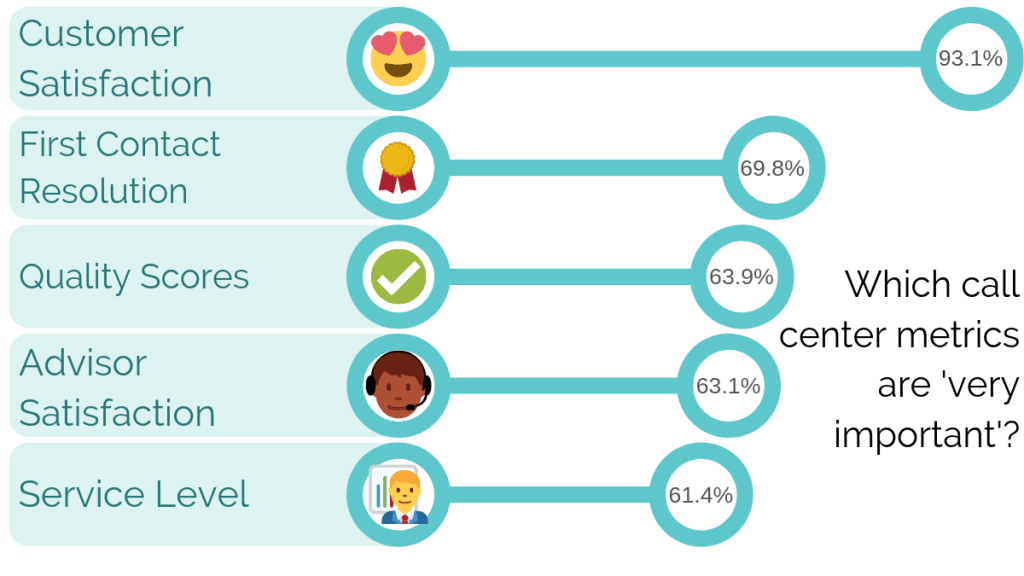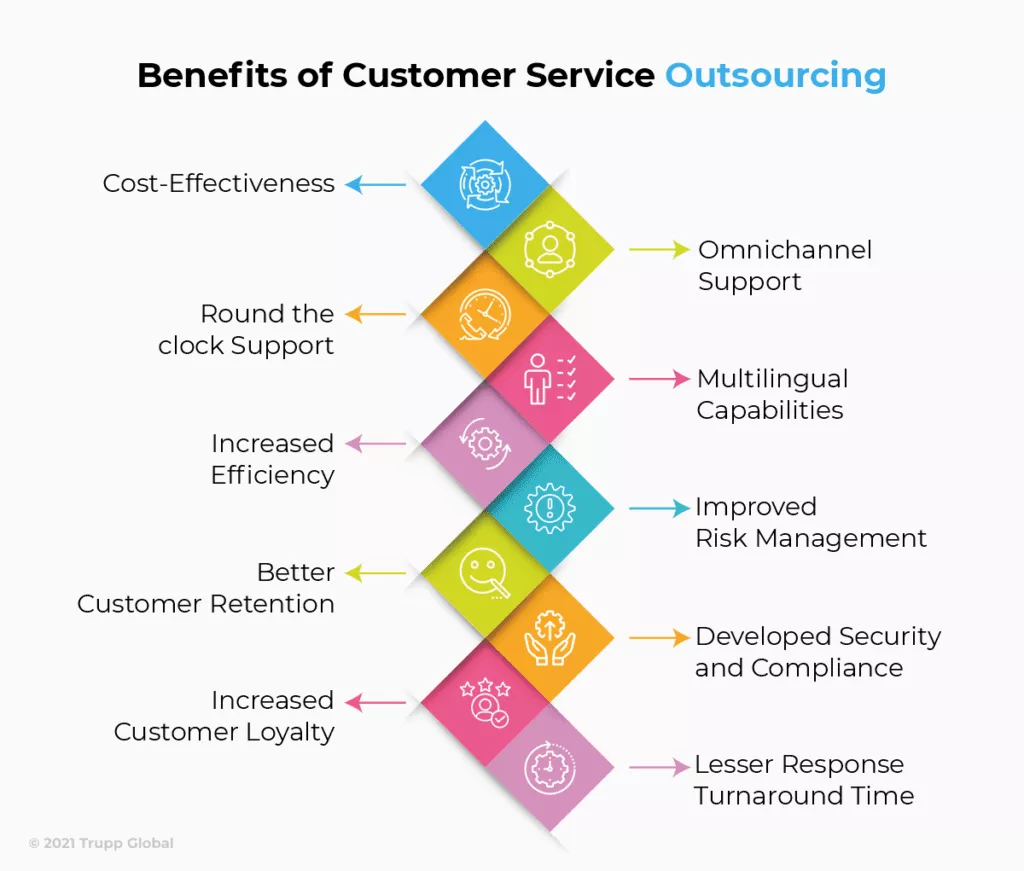Call centers are the front end of your company, and they allow you to provide a range of services to customers — from customer support to sales and marketing — in a more efficient way.
In the past, business owners had to hire their own employees for customer service jobs — which was expensive and time-consuming to set up and run. But with today’s technology and options, it is now possible to outsource these services and save time, money, and improve efficiency while reducing employee training and development costs.

Benefits Of Hiring A Call Center
Saves You Money
An outsourced call center can save you money in the long run. The initial costs are higher than hiring an in-house staff, but once you have your operations set up, it’s much easier to manage and maintain. It eliminates the need to bear the fixed cost of paying employees’ salaries or benefits.
Enables You To Provide 24/7 Customer Support
You can get constant customer support at all hours of the day or night, seven days a week. Most businesses now offer 24/7 customer service because they want their customers to feel like they’re valued and cared for at all times. Simply doing this can help you be the market-king and boost customer retention rate.
Provides More Flexibility Than An In-House Staff
Since your business is not anchored to the limited customer support staff that it can afford, manage, and maintain, you truly have access to a flexible model. If you need extra help during peak times or if your business is seasonal, you won’t need to hop on the hiring train, instead just offload that on an outsourced call center.
Eliminates The Investment In Employee Training
You don’t have to worry about managing employees or training them on how to best serve your customers. You only provide the training needed by the customer service representatives, who will then work with their clients directly through phone calls, email, or other forms of communication.
Expenses Related To Setting Up An In-House Call Center
Running an in-house call center is much higher than outsourcing it due to the investment in a call center software, office space and training can cost thousands of dollars per month. And when you have an in-house team, you need to pay overtime pay and benefits.
You need to also invest in IT equipment such as computers, phones, and other technology that will help you run your business smoothly (and efficiently) from one location rather than having several separate locations for different departments within your company where everyone needs a computer and phone line connected to their desk at all times!
This is why many businesses choose to outsource their customer service department because they realize that it simply doesn’t make financial sense.
When An In-House Call Center Makes Sense?
If your team is too small, and call volumes are too low — then, regular employees could handle inbound call requests without the need for a dedicated team as it may not be feasible to hire and train a full-time in-house call center operator.
But if your company has more than 50 employees, or if you’re handling high-volume accounts — like retail or healthcare — an in-house call center could be a better fit.
There are also other reasons why an in-house call center might make sense:
You have a lot of single calls that take longer to resolve than most: In this scenario, an in-house team would help ensure that each case gets handled properly and quickly.
An in-house call center also helps you generate tons of insights about customer behavior, calling patterns, resolution patterns, and so on. Such call center analytics can go a long way in shaping product features and optimizing business processes.
You need to keep track of complex customer issues: As with any new process, an automated system can help you manage customer interactions more efficiently. And if you have trouble keeping track of basic information like addresses and phone numbers (or if they change), a CRM software could help you keep everything organized.

[Source]
For example, if you have a very busy day at work and you’re already booked up with calls from customers who need help with issues that require more than basic service support (like billing issues or technical support), having an in-house call center can save you time and money by letting you take care of these matters instead of sending them out to another company for resolution.
As companies continue to expand and grow, they are not only looking for ways to increase revenues but also ways to reduce costs. When it comes to budget tracking, one of the biggest cost drivers is customer service and it is estimated that over 80% of customer complaints come from a lack of good customer service.
An in-house call center makes sense when there are dozens of products and customer queries are on a wide array of subjects — in this case, it is important to have an in-house team that can be trained extensively to provide top customer service. This type of approach also allows the company to focus on its core competencies and put its efforts into growing its business.
For your company’s reputation to remain strong, it’s imperative that your customers feel like they’re being handled with the utmost care and respect. If there’s one thing that can help boost that feeling of respect for your customers, it’s having an in-house contact center where its employees know their products inside and out and can answer any questions their customers may have about them.
When An Outsourced Call Center Makes Sense?
The core advantage of outsourcing is that it enables your company to scale up and down as required, without having to invest in a dedicated call center.
You might be in a position where you don’t have enough call volume to justify the cost of setting up a dedicated customer service team or even hiring an employee full-time for the same. Or, you may be looking to grow your business and want to focus on other aspects of customer experience.
In these cases, outsourcing can help you scale up without having to invest in expensive infrastructure or hiring staff.

[Source]
Tracking the status of an order is a task that can be done by a call center agent. The entire process of tracking an order is a repetitive and tedious task. The most challenging part of it is tracking the delivery status of the order.
Most customers have different requirements for their orders. Some have a strict time frame while others want to know where their package is at any given time.
An outsourced call center makes sense when your customer queries are centered primarily on a few aspects like delivery status, return, etc. — in such cases, it is easy to prepare an SOP that can be outsourced, and then you can focus on other areas of business like sales and marketing.
Outsourcing your call center can be a smart move if you have a small company with a limited number of employees. This is particularly true if you’re a startup and don’t have the resources to set up a dedicated call center. It’s also a good idea if you deal with customers from multiple countries and/or languages.
For example, if you operate in the US but sell products globally, it could be challenging to find someone fluent in both English and Spanish who can communicate with customers across the globe.
When you outsource your call center function, you’ll be able to choose from multiple vendors (or use one vendor across multiple locations). This means that you can adapt your business model as needed, depending on seasonal trends or other factors.
Cons Of An Outsourced Call Center
Poor Customer Experience
An outsourced call center offers inherently poor customer experience when compared to a dedicated in-house call center since an external team cannot be trained as extensively as an in-house team.
For example, if you have a new product launch and need your customers to be trained on how to use it, this can be difficult for an external team to provide for two reasons:
- You’d need to first train the outsourced team heavily. This racks up costs when you deal with multiple (complex) product launches in a year.
- You would need to send someone to your customers’ location or pay for training sessions with them at their office. This cost could add up quickly if you have multiple products that need customers to be trained on how to use them. Plus, CSRs from an external agency might not be able to answer all the questions about your product properly or effectively, which could lead to business loss due to poor customer experience.
Difficult To Set The Right KPIs
It is difficult to establish the right metrics to track. If an outsourced team is paid for minutes, then they do not have the incentives to resolve queries fast. If they are paid for each call, then they do not have incentives to support each customer till the end. It becomes difficult for them to maintain consistency in terms of quality and accuracy of data collection.
If you want your call center solution to be more effective and efficient, then hiring a team of dedicated agents with specialized skills would be ideal.
Final Word
Both call center types have their benefits, cons, and financial implications, but your choice comes down to your specific business size, needs, and offerings. Does it need a fully-staffed, in-house call center or can a smaller, outsourced call center suffice? If you can narrow down your needs, and compare your financial situation to what the data shows to be the average for both processes, then you have a better shot at determining which is right for you.





















Leave a comment!